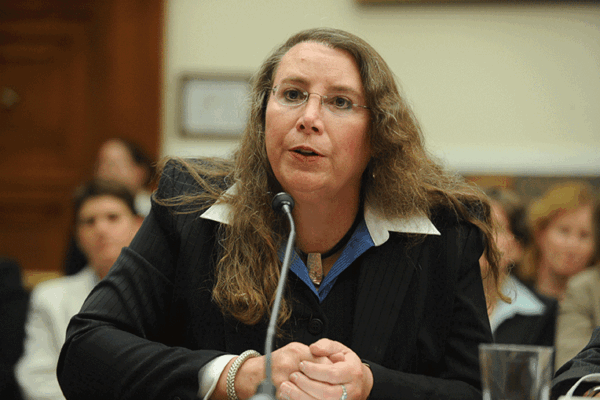Library of Congress Can Be Sued for Discriminating Against Transgender Veteran, Says Federal Court
FOR IMMEDIATE RELEASE
CONTACT: media@aclu.org
WASHINGTON -- Rejecting the federal government's attempt to throw out a transgender veteran's sex discrimination lawsuit against the Library of Congress, a federal judge ruled today that the case can go forward. The American Civil Liberties Union brought the lawsuit in June 2005 on behalf of 25-year U.S. Army veteran Diane Schroer who was offered a job as a senior terrorism researcher but was later told she was not a "good fit" after her future boss learned she was in the process of transitioning from male to female.
"After putting my life on the line for my country for 25 years, I couldn't believe that I could be refused a job that I was told I was the most qualified for solely because I happened to be transgender," said Diane Schroer, a former U.S. Army Special Forces Officer who specialized in fighting terrorism. "But today's decision makes me proud that I served a country that values equality and fairness."
After retiring from the military, Schroer, who had been hand-picked to head up a classified national security operation while serving as an Airborne Ranger qualified Special Forces officer, applied for a position with the Library of Congress as the senior terrorism research analyst. Soon thereafter she was offered the job, which she accepted immediately. Prior to starting work, Schroer took her future boss to lunch to explain that she was in the process of transitioning and thought it would be easier for everyone if she simply started work presenting as female. The following day, Schroer received a call from her future boss rescinding the offer, telling her that she wasn't a "good fit" for the Library of Congress.
In its motion to dismiss, the government argued that Title VII, which protects against sex discrimination, does not protect transgender workers. The court rejected this argument, ruling that the fact that Schroer is transgender does not bar her from bringing a sex stereotyping claim. The court said: "Title VII is violated when an employer discriminates against any employee, transsexual or not, because he or she has failed to act or appear sufficiently masculine or feminine enough for an employer."
"Today the court sent a very clear message that employers can be held liable when they make decisions about whom to hire based on stereotypical views about gender as opposed to merit," said Sharon McGowan, a staff attorney with the ACLU's Lesbian Gay Bisexual Transgender Project. "Employers, including the government, are now on notice that discriminating against transgender workers may land them in court."
The court put off for a later day the question of whether Title VII's ban against sex discrimination also bans discrimination based on gender identity. The court did, however, reject the government's contention that laws barring sex discrimination are limited to a person's chromosomal configuration. The court explained, "It is well-established that, as a legal concept, 'sex' as used in Title VII refers to much more than which chromosomes a person has."
A YouTube video of Schroer talking about her experience is available online at
A copy of the decision, the complaint, a bio and photographs of Diane Schroer are available online at www.aclu.org/caseprofiles.


